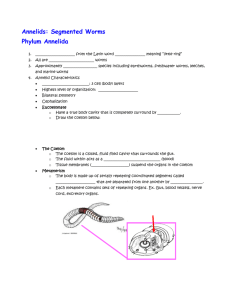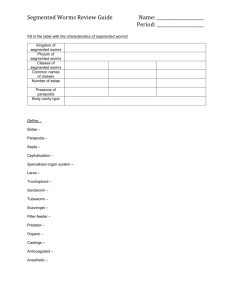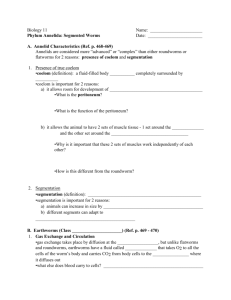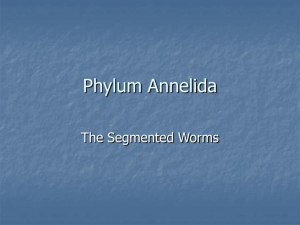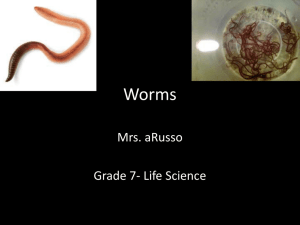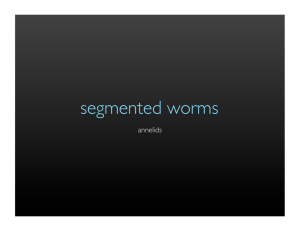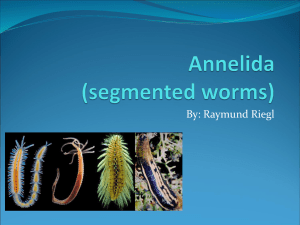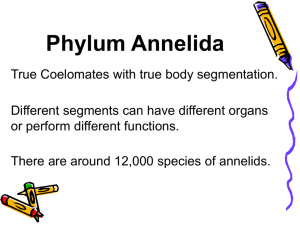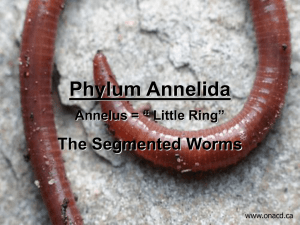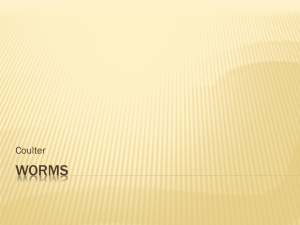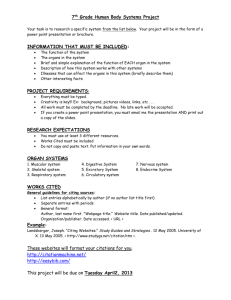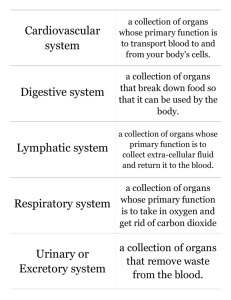Phylum Annelida
advertisement
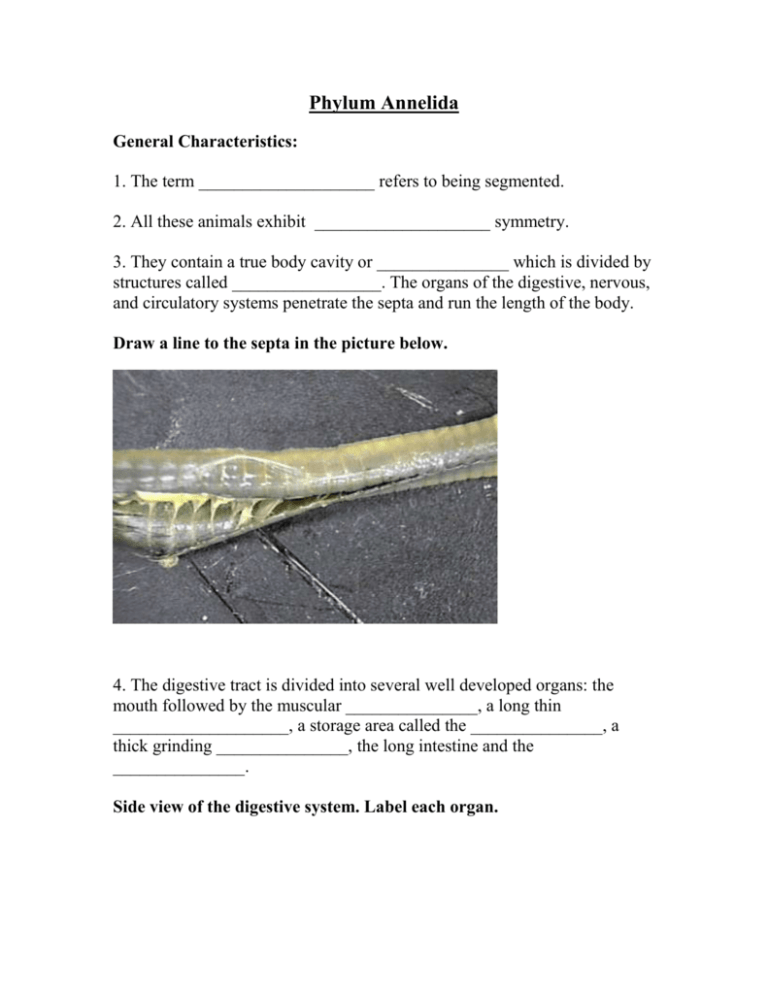
Phylum Annelida General Characteristics: 1. The term ____________________ refers to being segmented. 2. All these animals exhibit ____________________ symmetry. 3. They contain a true body cavity or _______________ which is divided by structures called _________________. The organs of the digestive, nervous, and circulatory systems penetrate the septa and run the length of the body. Draw a line to the septa in the picture below. 4. The digestive tract is divided into several well developed organs: the mouth followed by the muscular _______________, a long thin ____________________, a storage area called the _______________, a thick grinding _______________, the long intestine and the _______________. Side view of the digestive system. Label each organ. 5. The circulatory system is _______________, since the blood does not leak out of its blood vessels. It contains both a _______________ and a ventral blood vessel, connected by _______________ aortic arches just above the esophagus. Label the components of the circulatory system. 6. The _______________ is small and is located near the pharynx. 7. A ____________________ nerve cord extends from the brain and runs the length of the body. In each segment it swells to form a structure called a ____________________. Label the parts of the nervous system. 8. The liquid waste is removed from the body by structures called ____________________. 9. Each segment contains __________ nephredia except for the first three and the last one. How many nephredia does an earthworm contain if it has 65 segments? __________ 10. Reproductively earthworms are _________________________. They contain both male and female reproductive organs in the same body. These animals usually do not fertilize themselves. During sexual reproduction, the male and female intertwine and deposit their eggs and sperm into a _______________ sac secreted by the ____________________. 11. Their fertilized eggs develop into ________________________ larvae. 12. Their muscular system contains both _______________________ and ______________________ muscles. 13. The _______________________ muscles contract causing the body to become elongated. The __________________________ muscles contract causing the body to become short and thick. 14. Small bristle-like hairs called _________________ extend from the body walls and act as anchors as the worm moves. There are __________ pairs of setae per segment. The first three and the last segment does not contain these setae. How many setae does a worm containing 45 segments posses2? __________ 15. The worms contain a thin waterproof layer called the _______________. 16. They have no skeleton other than the ____________________ one formed by the fluid filled body cavity. 17. There are no respiratory organs and the worms breathe through their moist ___________. 18. There are three classes of Annelids: _________________________ (earthworms), _________________________ (sand worms) and _________________________(leeches). 19. The leeches are _________________ and are used by the medical profession to withdraw blood from humans in certain situations. Earthworm Sand Worms Leeches
